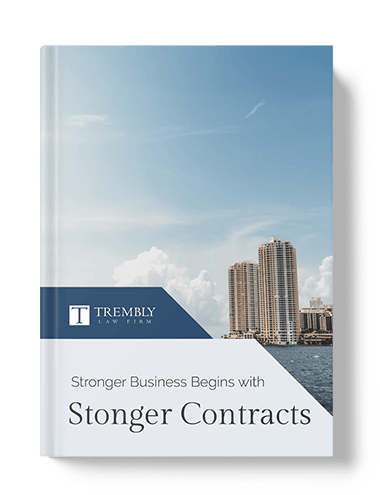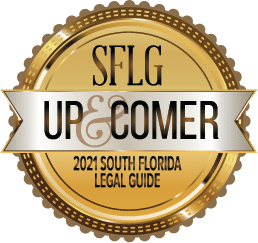Business interruption insurance compensates the policyholder for lost business income if the policyholder’s company had to vacate the premises or close its doors. The cause is due to disaster-related damage that is covered under the policy. In other words, this insurance covers the revenue you would have earned, based on your financial records, had the disaster not occurred. This may include casualties such as fires, hurricanes, and other natural disasters.
Granted, this doesn’t always mean exactly what you might think it does. Policymakers may define the concept of a disaster somewhat differently than policyholders might. In fact, this is almost always the case. What constitutes an actual disaster for an individual person isn’t always what constitutes a disaster purely in the legal sense.
Policymakers want to protect their own interests, and to prevent fraud. Many of them have established very specific guidelines as to what they define as a disaster.
Business Interruption Insurance Relating to The Coronavirus
That takes us to the current situation that many business owners have found themselves in. In the wake of business closures due to the Coronavirus (COVID-19) pandemic, many businesses will be filing claims. They thus will find themselves on the receiving end of denial letters and big surprises.
You might feel that you’re entitled to money or that you might even need compensation in order to survive. This is understandable. This shutdown represents an almost complete cession of many types of business duties that you’d otherwise fulfill.
What Will Business Insurance Cover?
Business insurance can cover many interests and assets. Assets would include vehicles, buildings, facilities, equipment, and even homes in the case of homeowner enterprises. In the case of property, natural disaster damage isn’t covered, especially in a vulnerable area.
Business Interruption insurance can be bought separately, but usually is purchased as part of “Business Owners Policy” package (a/k/a BOP) which include property and liability coverage. Business Interruption insurance covers when circumstances stop regular operations from happening.
You need to review your policy to determine whether it covers all risks or whether it includes exclusions or other carve outs.
What triggers a Business Interruption policy?
First, the business must have suffered a covered event, and second, the business must make a claim. Most business interruption policies require that the business suffer a “direct physical loss” or “direct physical damage”. These terms are not usually defined in the policy, and under Florida law, undefined words or phrases should be given their common everyday meaning.
Exclusions and Defenses
Policies, especially large ones, have specific exclusions for events that would be otherwise covered. Nevertheless, the rules laid out by your policy aren’t always defined the same way regardless of your needs. As a result, you’ll want to make sure that you’re ready to state your case as clearly as possible. Especially factor in how many other people are going to be making claims very similar to yours.
Currently, the medical situation mandates for individuals to stay at home as much as possible. The shutdowns that occurred, as a result, have greatly impacted almost every aspect of every industry in the nation. Keep in mind that many insurance firms will have quite a few ways of dealing with the situation. You’ll need to be prepared to deal with these in turn.
We anticipate the insurance companies may raise any or all of the three defenses to coverage:
- Unbeknownst to many business owners purchasing these policies, since the SARS epidemic in 2003, big insurance companies began writing exclusions into their policies for loss of business income due to viruses, bacteria and pandemic outbreaks. You may be quick to say that such a line isn’t actually in the policy you currently hold. There’s actually a good chance, however, that there is such a provision.
- Insurance companies may also take the position that there has to be a direct physical loss or damage in order for the claim to be approved and that since the business losses created by COVID-19 are almost all economic, the economic or monetary loss is not the result of a direct physical loss. The ultimate interpretation depends on your State law. Some courts have held that certain non-visible damages (like mold, vapors, E.Coli, etc.) may suffice as “direct physical loss.” Some courts have also drawn the distinction between “loss of possession” and “loss of use”, indicating that “loss of possession” could rise to the level of “direct physical loss” whereas “loss of use” due to a government order may not. Florida does not have any direct case law on point, and even those states that do have decisions are not uniform.
A prominent policyholder advocates attorney recently and proactively (even before an insurance claim was filed) initiated the first lawsuit in the nation on behalf of a New Orleans French Quarter restaurant. They were seeking a declaratory judgment requiring that the insurance carrier be forced to pay for losses caused by the pandemic. He has argued that the coronavirus can stay on surfaces and substances for many days. A ruling would affect the property and cause property damage.
This is a novel argument, and it remains to be seen the effect it will have. The case could certainly set some degree of precedent. Nevertheless, it’ll be difficult to discern exactly how the courts will rule on this case. The same goes for many other similar ones in the near future.
- Finally, they may argue that local orders because of the coronavirus are not sufficient to trigger coverage under the policy. This provision might actually be irrespective of whatever requirements were spelled out in orders issued by local authorities.
What Should Business Owners Do?
Those who have a vested interest in a particular ruling should not wait for the decision of other courts to state their case. Rather, they need to make sure that they get in touch with seasoned legal professionals.
If you have business interruption insurance, you need to immediately:
- Obtain a complete copy of your policy (make sure that it’s complete so you have the best chance at finding all relevant clauses in it that could have an impact on your business’ current operations).
- Start pulling your financials to support your claim.
- Submit your claim.
Business Interruption Claim Letter
Your letter should be brief and specific. The brevity is so that you can get to the point and state your case. Add relevant calculations for compensation and photocopies of paperwork.
First, detail your business, including location and operations. Go into the details about any damages from the current disaster, and where you are working currently. Some businesses will operate at different locations. Mention if you were cut off from necessary utilities and supplies.
Talk about the financial impact, including if you had to shut down. Provide a timeline of events that can be corroborated with legal documents. Keep a written record.
When To Acquire An Attorney
We believe that in a time of economic crisis, you need compensation to cover your losses. Many insurance companies, however, are denying claims. You should acquire an attorney if your claim is denied and such denial will cause you to suffer significant financial losses or even close down your business permanently.
Protect Your Small Business With Trembly Law
The lawyers at Trembly Law Firm want to help you handle extra expenses. Let us help you with insurance claims to save your business.
Time is of the essence for the survival of your business. Please do not hesitate to contact the knowledgeable attorneys at Trembly Law Firm to help you guide your business through this tumultuous time and help you develop a plan to improve the chances of survival of your business and avoidance of lawsuits in the future.

















